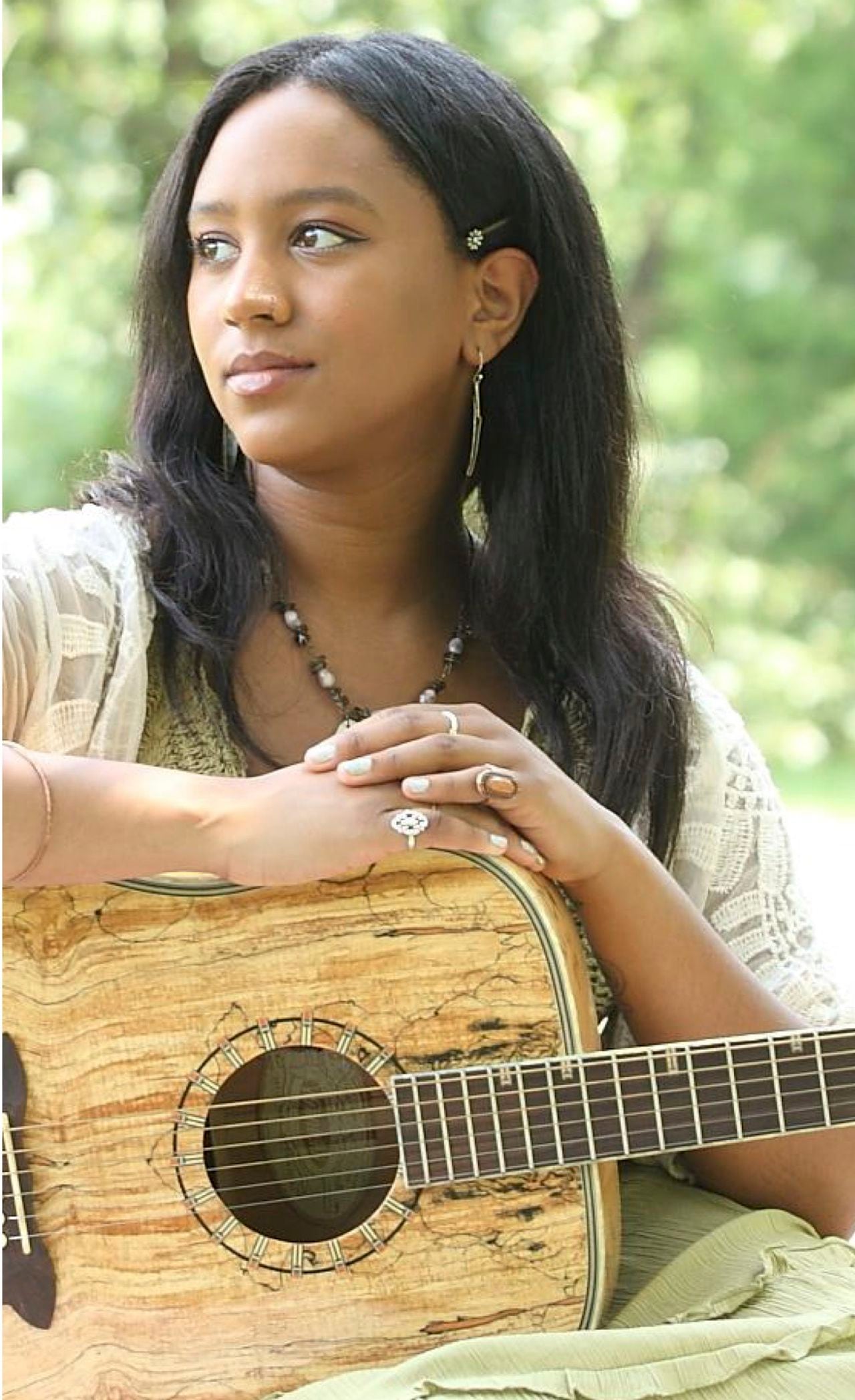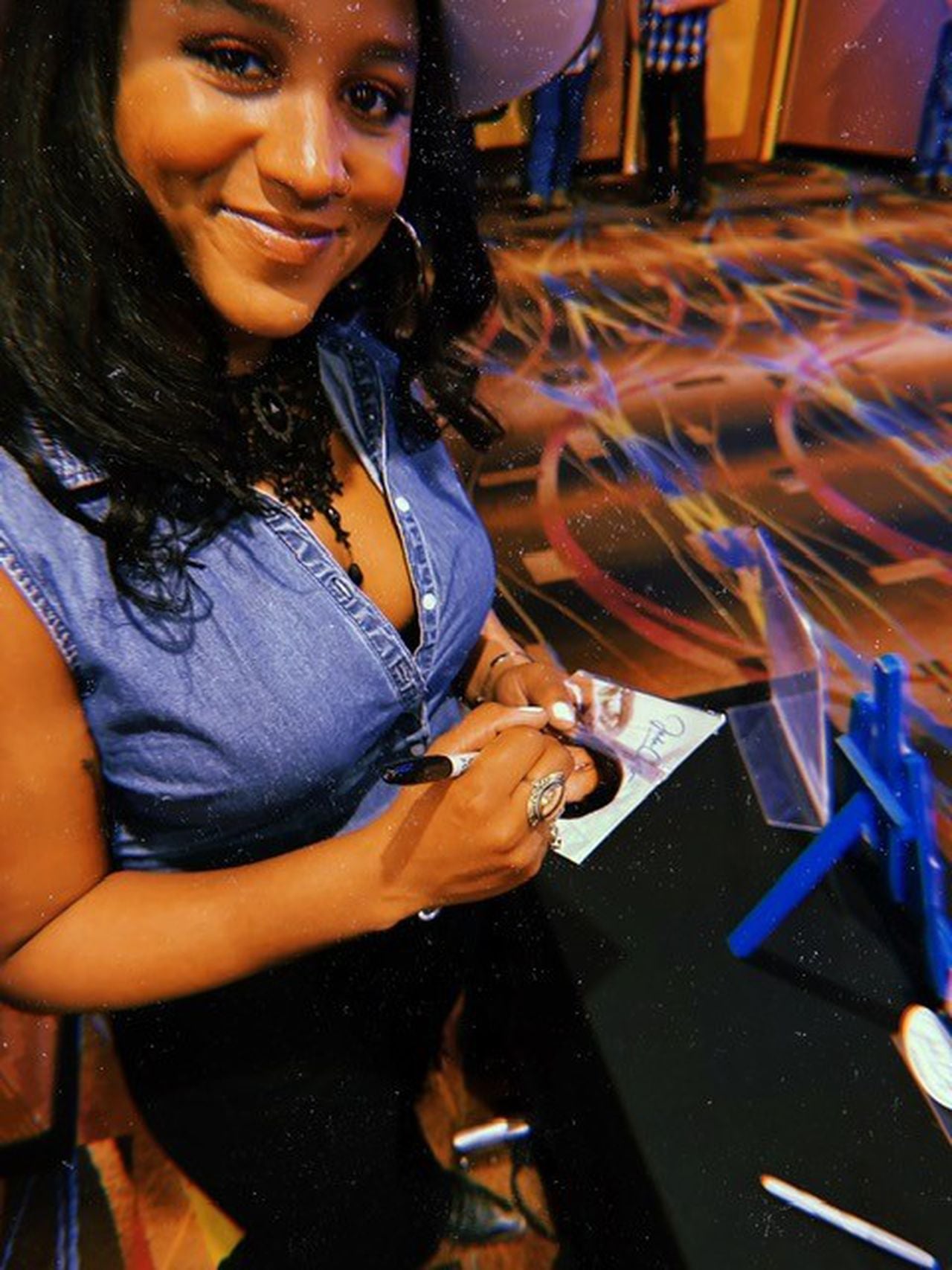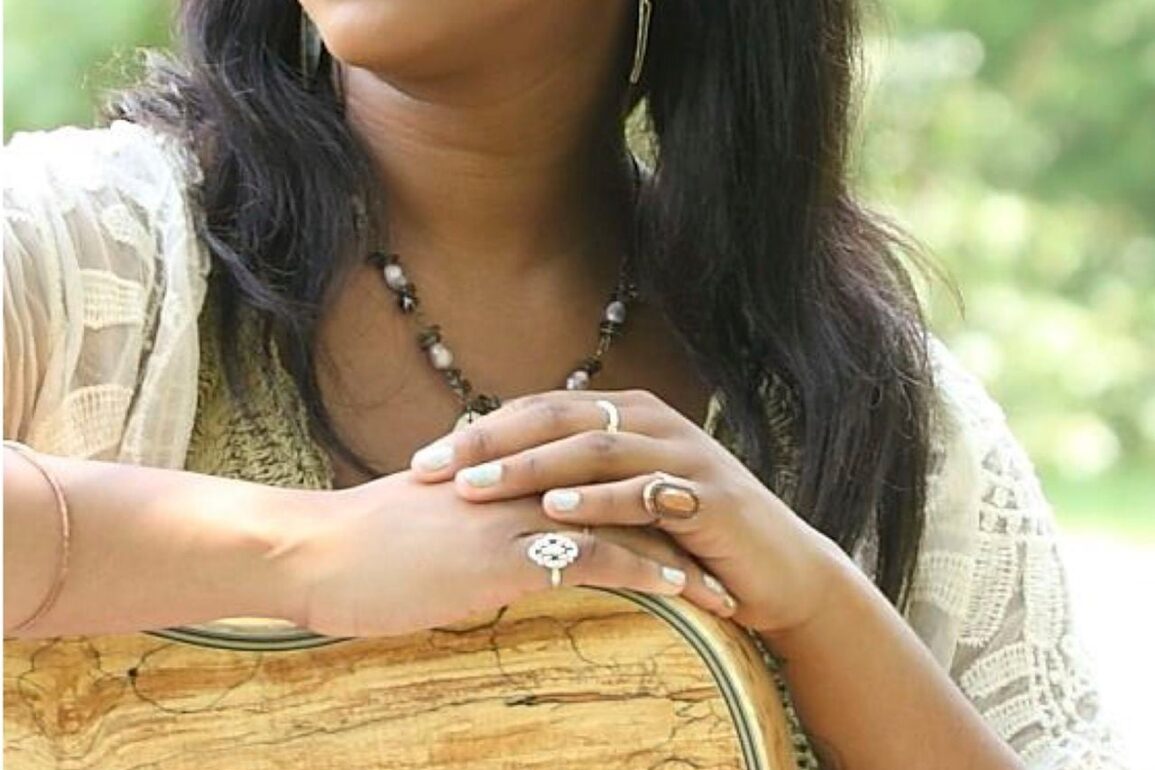The girl never stopped singing. She dropped every instrument she begged to learn how to play. Drums. Piano. She was “super” into them, until she wasn’t. Except her voice. Oh, and the guitar.
Jada Cato was a brown girl growing up in then-predominantly white Ellenwood, Georgia—she’ll tell you she’s from Atlanta, then laughingly confesses her hometown is 20 miles south of the city. She is the third of three girls who were always singing and dancing.
Singing what their parents listened to: Whitney, Aretha. Singing the pop sounds of the times: Britney, Christina, Justin. “The whole post-Mickey Mouse Club crew,” Jada says now with a laugh.
Singing Tejano music—inspired by the queen of the man-dominated genre, Selena, who was murdered by the president of her fan club and boutiques in 1995, before Jada was born. It was the 1997 film on the star that moved her. “I thought, ‘I should be doing what she’s doing,” Cato remembers now. “She’s real. I was obsessed with her. Had her CD, poster, everything. I would write little songs, then translate them into Spanish. They rhymed and everything. I was very proud of that.”
Jada’s big sisters listened to country, so Jada did, too. And liked it. “It’s just always been the vibe.”
Jada was in middle school when Taylor Swift debuted with her eponymous album—and a guitar. The music was “contrary, it was angsty,” Cato says. (She’ll occasionally make up a word when nothing else really fits.) Jada wanted to write angsty. “She was so bold, like putting people’s names in songs. That was super edgy,” and she was “obsessed” with the guitar.
Which she has not put down.

Birmingham Southern alum Jada Cato is a unique rising talent in country musicSarah Powell
Cato lives in Birmingham now. For now.
She’s here because the college nestled on the city’s west side “sent me something in the mail.”
“I had never been to Alabama before, and I’m like, what is this little school? It’s cute.”
She visited Birmingham Southern and quickly felt “like not even wanting to visit anywhere else because it was just so beautiful,” she is saying. “I just felt immediately at home.”
New light switches on the walls, new picture frames down through the halls
I still sleep on my side of the bed, too many years sleeping on the edge
You keep the house, I keep the car; I keep the friends you keep the WHAT
You keep the digs, I keep the guitar; I keep the pain, you wear the scars.
You took the lie, and left a little, WORDS the heartbreak down the middle.
“Heartbreak Down the Middle,” by Jada Cato
Now, six years after graduating with a degree in theater and religion (“I really am interested in what people believe and how they see the world; theater is a way of expressing what people believe,”) Cato is an ascending country music talent. A songwriter and vocalist, she’s still strumming that Swift-inspired guitar—in a genre that has in recent years seen a parade of Black female talents take center stage.
Cato benefits from the breadth of their melanin magic and their success, and she’s not blind to how genetics and the white spaces of her youth helped prepare her to navigate the genre and the challenges that remain.
“I feel like I am received well, and I acknowledged that,” she says. “A lot of that is the privilege of me being light-skinned, me having grown up in white spaces and understanding whiteness—understanding how to navigate that definitely works to my benefit.
“It can be frustrating, of course, too, because I’m such an advocate for everybody,” she adds. “Every single person on this planet is important to me. So, when other people aren’t on fire about justice or humanity, I get so icky. At the same time, some of these people are getting me in the door so I can build my soapbox so I can talk about things.”
Hey, you should know that gets easier with time.
Girl, You will learn to stop fighting all the waves and ride.
Love, don’t be fearful ‘cause God will leave not one behind
Baby, don’t look outside yourself, everything you need’s inside
“Her,” by Jada Cato
My bad. You’re not yet familiar with Cato’s soapbox. It was introduced to her by her manager, who for about a year dodged being her manager until he got a whiff of her songwriting gift. Until he heard “Her” (“You can write a damn song,” he told her. “I’ve been tryin’ to tell you,” she responded.)
She wasn’t an easy early client. Young talents rarely are. Cato had a vision for her work—a “clear” vision. “I’m super rushy (made up word #2), though that’s not really how life works,” she says with a laugh. “Apparently, life doesn’t revolve around me. Isn’t that crazy?”
Her vision including lyrical dives into depths too deep even for country’s most ardent disciples. Eric Halbig, a songwriter/collaborator often pushed his protegee. “He’d say, ‘I don’t know. I don’t love that. I think we can do better than that,’” Cato said. “I hadn’t yet really had somebody say, uh, that’s not super great because I was just writing by myself, and it wasn’t that Nashville, radio formula. You can’t write six-minute songs. I was really bucking against the rules, but Carl was like: ‘If you want to stand on your soapbox and say something, you gotta build the box first.’
“So that’s something I remind myself of all the time; This isn’t just music, this is the music business. You can sit in your room and play for yourself and that’s fine. I had to figure out how to write in a way the business would receive but also that didn’t make me feel like I was completely selling out.
“I feel like I’ve gotten there and it’s just getting better and better and better.”
Her eponymous debut album dropped in June.
School days
Cato can’t say enough good things about her years at Birmingham Southern. About the campus, the professors. BSC. “I love the teacher-student ratio,” she says. “I knew I would get a lot of individual attention. I have ADHD. So, it’s really important to me that teachers like really take the time to have relationships with me, explain things to me I don’t understand, and are patient.”
While feeding the growth of her skills, Cato most fondly recalls classes that fed her ability to maneuver through volatile times—such as Harry Potter & Hip Hop, Who is Jesus?, the History of Terrorism. “It’s so important we were able to learn and think outside of the box. That’s what makes you smarter.”
Cato is aware of the institution’s financial travails, of its need for $37.5 million to avoid shutting down, of the recent denial by the Alabama state treasurer to provide a $30 million loan to the school.
“I can’t really look at the ups and downs, it’s giving me whiplash,” she says. “They’ll find a way.”
You don’t get to choose the cards you’re handed, but you choose the game
Chase the dream like a lion after his next meal.
“You Choose,” by Jada Cato
Cato chose to chase in Birmingham after returning to Ellenwood following her first post-college gig—a one-year contract as a performer on Royal Caribbean cruises. “I was home for two or three days, then moved back,” she said. “I just had a feeling that I should be here.”
Like most aspiring creatives, Cato hustles. Juggling jobs (think coffee spots, retail), gig gigs (teaching yoga and working as an intimacy coordinator, someone who choreographs intimate scenes “to better protect actors and make sure their boundaries are adhered to”), and performing at area venues, festivals, and theaters.
Layer in three-hour drives every other month or so north to, of course, Nashville, the heartbeat of country music. She’s made friends there, found writing partners. While there, she collaborates, lays down tracks, and meets with A&R folks. “I’ll get a lot done in a small chunk of time,” she says. “Boom, boom, boom, boom, boom.”
In 2019, Cato was a GLAAD Rising Star grant recipient for her work using music to accelerate acceptance for LGBTQ people,” the organization said.

Birmingham Southern alum Jada Cato is a unique rosing talent in country music.Courtesy Jada Cato
Box building
If she were to do a TED Talk, Cato says it would be called Layers of Oppression.
“I’m a woman, I’m Black, I’m queer,” she says. “You find pockets where people will only understand parts of you. Women understand the part of me that is a woman, Black women understand a part of me that is a Black woman, and Black queer women understand the part of me that is a Black queer woman.”
They’re all unique sides of the box she’s building—through her work, through everyday encounters in an industry that while increasingly inclusive still exists in America 2023.
“It’s so hard to navigate a space that is majority white men, but that’s most spaces so it’s nothing new to me,” she says. “I don’t get my feelings too hurt. … but I know it’s not personal to me. It’s not my fault people are racist, so I try not to take it personally. I try to show up and do my job.
“You pick and choose your battles There are times when I speak up and say that’s not okay. There are times when I’m not going to be drawn into that. I’m not your DEI coordinator.
“Part of me has always felt like the question [of racism in country music] is so funny because Black people made country music. So, it’s like how does it feel to be kicked out of your own house?
“Yeah, there are times when I get really scared. I’m in the middle of Arkansas, it’s pitch black, except for stage lights and I’m outside with a couple of thousand people. I don’t know what could happen. I don’t have a bullet-proof cape. It’s scary.
“But I’m used to being the only one in the room.”
Cato recently moved to a new place and took on a roommate to save money. Save for the eventual and inevitable move. To Nashville.
“I’m like kicking and scratching trying to get the hell out of here but [Birmingham’s] got her nails in me,” she says. “I love Birmingham, but I’ve been here a hot minute and I’m ready for something else, ready to have new experiences. I need to be in the thick of it.
“I’m not going to be by myself so much. I get so lonely. I’m putting in a lot of time and effort just like everybody else, but there’s a lot of respect that comes with being there I want to be in it, doing the thing.”
In it, doing the thing. Sounds like a song—a country song—that needs to be sung. With a guitar.
I’m a Pulitzer Prize finalist for commentary, a member of the National Association of Black Journalists Hall of Fame, and winner of the Edward R. Murrow prize for podcasts for “Unjustifiable,” co-hosted with John Archibald. My column appears in AL.com, as well as the Lede. Check out my new podcast series “Panther: Blueprint for Black Power,” which I co-host with Eunice Elliott. Subscribe to my free weekly newsletter, The Barbershop, here. Reach me at rjohnson@al.com, follow me at twitter.com/roysj, or on Instagram @roysj
This post was originally published on this site be sure to check out more of their content.









